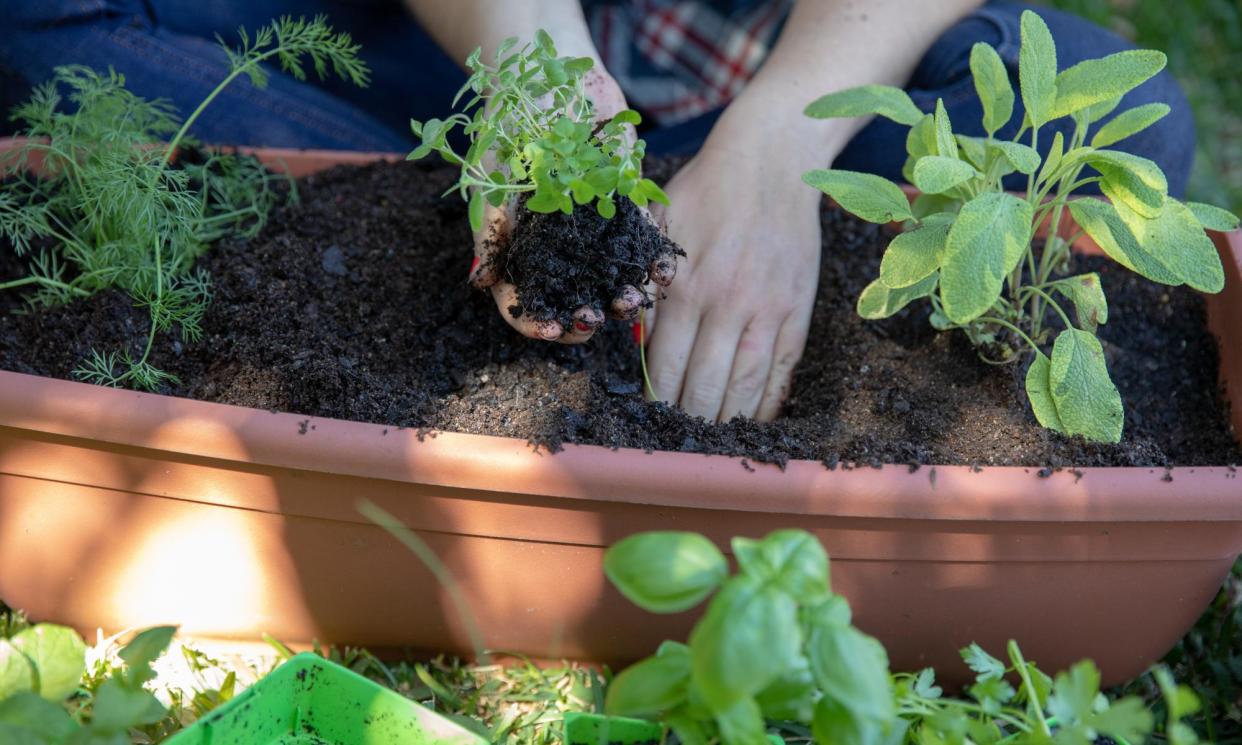A gardening club is a collective way to grow food, flowers and friendship

Once a month, about 10 of us gather with our hand hoes, some gloves and a basket filled with snacks and wine. We rotate houses, either drawing names from a hat to see whose turn it is or choosing based on who hasn’t hosted in a while. Once arrived, we set the kids loose to run amok, then dig in – literally.
“Gardening club” is a bit different every time but the constant is: we work hard, get our hands dirty, catch up on each other’s lives and let the kids entertain themselves.
Often gardening can feel like a private act – and a small environmental gesture in the face of climate change. But collective gardening can mean real, visible progress towards providing habitats for wildlife and lowering your carbon footprint – plus there are personal gains.
Find your community
A task such as mulching a large area or planting en masse can be daunting for a person alone. However, gardening is an excellent case of strength in numbers.
With over 50% of the world’s population living in urban and suburban areas, home gardens actually surpass the area used by farming, which means that private veggie and ornamental gardens contribute significantly to lowering greenhouse gases and providing oxygen to the atmosphere. Gardens offer food and shelter for pollinators and birds while reducing traffic noise and air pollution. Whether they are intended for food, flowers or simply beauty, gardens enhance the environment and the people living in it.
Related: Budget-friendly tips to keep rented homes warm in winter
Of course gardens require input. Group gardening makes a difficult job into something manageable. With 10 or 12 eager hands, a job that would be daunting for one or two people goes swiftly and smoothly. Plus having help reduces the strain that heavy materials such as large stones or full wheelbarrows take on one’s body.
Make it a social occasion
The mental health benefits of group gardening are multifold. Our gardening club offers a social space that – unlike typical outings to restaurants or cafes – isn’t based on spending money, is only loosely tied to alcohol consumption, and takes place entirely outside.
Increasingly, medical researchers are finding that elements in dirt trigger serotonin release in our brains and boost overall immune health, which is why an hour spent in the garden can be so rewarding in terms of your mood.
In my group, people bring what they want to for the post-gardening picnic but there’s no pressure to bring something homemade. What’s vital is being present and giving it your best. If the most you can do that day is pull a few weeds and keep an eye on the kids, that’s a perfectly fine contribution – at gardening club there’s no expectation to perform. Simply show up and be you. The soil works its magic: I often find that I show up to gardening club tired and grumpy but leave energised and clear-headed.
Starting a gardening group in your area is a great way to support your individual efforts to grow food, flowers and ornamental plants that beautify your neighbourhoods and home areas, while strengthening friendships. Our group meets monthly, always on a weekend, and on top of this we have developed a ritual towards the end of the year to gather for Christmas holidays in place of that month’s gardening session.
Gardening group is a place we can always go, no matter how we look or what’s on our minds, and it’s guaranteed that by the end of the two-hour session we will feel the physical and mental rewards of having worked together to accomplish something. The hosts get the added benefit of ticking off a major job on their list.
Keep it inclusive and low-key
Most of us in the group are mothers and, as a result of our monthly gatherings, our children all know each other well and play together without us having to supervise constantly. I think there’s also value in having our children see us working with our hands, taking on difficult jobs (notably, usually without any fathers present – just the ladies on the tools). It shows the kids that teamwork is an important aspect of life, that no job is too difficult for a group of dedicated people, and that it’s possible to have fun while getting things done.
If you have a few amateur or avid gardening friends, consider starting a monthly gardening group. Ours is incredibly low-maintenance, reliant on a text message thread, with the original founder keeping an eye on whose turn it should be. When the turn comes for gardening group to visit your patch, don’t forget to take a “before” photo to compare with the “after” – you’ll be amazed by how much things will transform over two hours, when people with various knowledge levels and skillsets put their strengths together.
And you’ll definitely savour that glass of wine after the hard work.
Rachel is a writer originally from the US, now based in South Australia. She is author of the memoir You Had Me At Pét-Nat, and publisher and founder of Pipette Magazine

 Yahoo News
Yahoo News 
